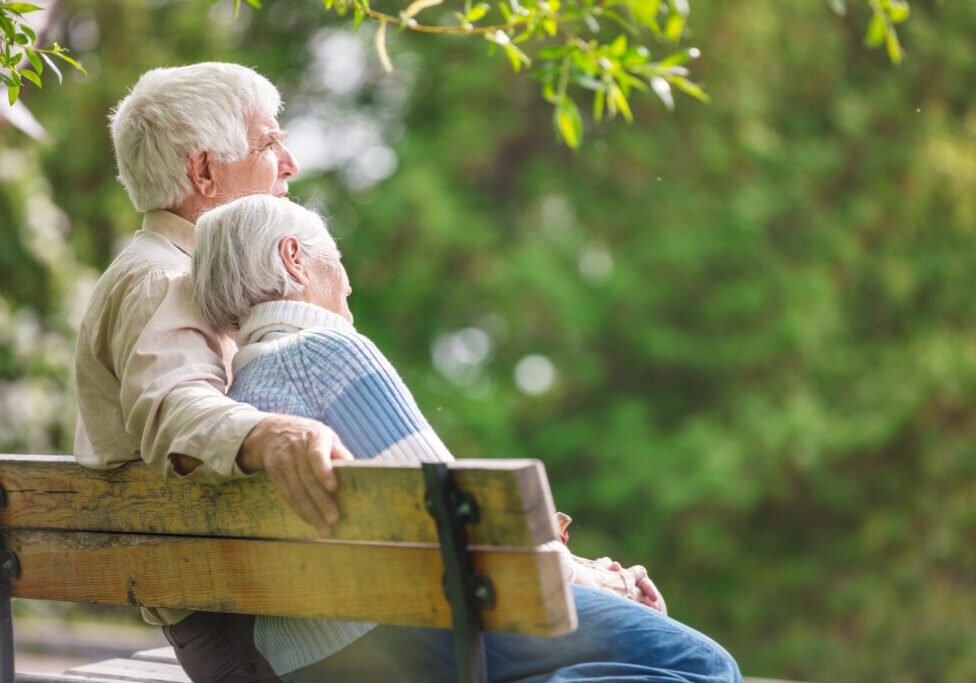Life expectancy in the United States peaked in 2014 and has since dropped significantly, moving the world’s wealthiest nation from the middle of the pack to an international outlier. A team of reporters at the Washington Post digs into the issue and finds that opioid deaths and gun violence have played important roles, but the biggest culprit is the prevalence of chronic disease.
Heart disease and cancer remained, even at the height of the pandemic, the leading causes of death for people 35 to 64. And many other conditions — private tragedies that unfold in tens of millions of U.S. households — have become more common, including diabetes and liver disease. These chronic ailments are the primary reason American life expectancy has been poor compared with other nations.
In many counties, particularly in the South and Midwest, death rates for working-age people are higher today than they were 40 years ago.
Wealth inequality in America is growing, but The Post found that the death gap — the difference in life expectancy between affluent and impoverished communities — has been widening many times faster. In the early 1980s, people in the poorest communities were 9 percent more likely to die each year, but the gap grew to 49 percent in the past decade and widened to 61 percent when covid struck.
Blow to clemency requests
A Baton Rouge-judge on Tuesday dismissed a lawsuit to grant clemency requests to 55 death row inmates. The move came after the Louisiana Pardon Board and prosecutors reached a deal to only hear a maximum of five requests. The board, at the direction of Gov. John Bel Edwards, had scheduled hearings for 20 of the 55 death row inmates seeking commutation to life sentences. The Advocate’s James Finn reports:
“What we’ve had in the last three days is a complete capitulation by the board to align itself no longer with the governor’s directive, but with the attorney general and the district attorneys,” Michael Arata, an attorney for the death row prisoners who requested clemency, told reporters after the hearing. “The settlement agreement…essentially accepts 100% of the requests that were made in the preliminary injunction,” Arata added, referencing the demands first requested by Landry and other prosecutors. “It’s a complete capitulation and a wholesale flip.”
Lawyers representing the death row inmates say the deal was reached with attorneys chosen by Attorney General Jeff Landry, who is a plaintiff in the case, after he fired a lawyer on the state pardon board for a conflict of interest. But the terminated attorney, Art Smith, denies those allegations.
Putting children in adult jails (again)
Earlier this month Louisiana reluctantly acquiesced to a federal judge’s order to remove boys being housed at the state’s maximum-security adult prison at Angola. The state is appealing that decision. But now correction officials are looking to house girls in the same center that imprisons hundreds of adult women inmates. The Louisiana Illuminator’s Julie O’Donoghue explains the frustration among criminal justice reform advocates:
“We know youth do not belong in adult facilities, and that is why it is beyond frustrating to watch OJJ make the same mistake over and over again,” Gina Womack, co-founder and executive director of Friends and Families of Louisiana’s Incarcerated Children, wrote in a response to the Illuminator. … “I think we should all be concerned that assurances from (the Office of Juvenile Justice) on paper don’t mean anything,” said Hector Linares, who runs the youth section of the Stuart Smith Loyola University Law Clinic in New Orleans.
Americans don’t mind living near solar and wind farms
Three-quarters of all Americans say they are comfortable with living near solar farms. But local pushback on these projects in Louisiana is evidence that opposition remains to these renewable energy sources. The Washington Post’s Allyson Chiu, Emily Guskin and Scott Clement explain how a small, vocal minority of opposition can carry outsized influence as the U.S. economy transitions to clean energy.
But while backing renewables remains popular among many Americans, experts say progress can be impeded by a small, yet vocal, opposition, which can be driven in part by the sentiment of “Not in My Backyard,” or NIMBYism.“Deploying lots of renewable electricity is not a slam dunk,” said Doug Vine, director of energy analysis at the Center for Climate and Energy Solutions. “We know things like permitting reform and NIMBYism are a challenge for renewable electricity and transmission projects. The closer that these projects get to where many people are, the more challenges that can arise.”
Number of the Day
75% – Percentage of Americans who say they would be comfortable with solar panels in their communities. (Source: Washington Post-University of Maryland poll)
